| Promoting PPD in Georgia through Monitoring and Awareness Raising |
Deloitte Consulting LLP, a contractor to the United States Agency for International Development (USAID) |
2021-2024 |
GEL 328,259 |

Project Title: Promoting PPD in Georgia through Monitoring and Awareness Raising
Donor Organization: Deloitte Consulting LLP, a contractor to the United States Agency for International Development (USAID) for The USAID Economic Governance Program
Project Contract Number: R-2010-00014
Total Budget: GEL 328,259
Duration of the Project: April 5, 2021 - October 4, 2024
Project Brief Description and Goals
The project aims to continue the operation of the PPD Quality Tracking Mechanism, expand its use in regions outside the capital and raise awareness on PPD among state and non-state actors as well as the wider society. Selected draft laws and regulations will be evaluated based on the extent and quality of inclusive consultation.
The evaluation of the extent and quality of PPD will be based on four pre-identified phases of policy development: policy design and development, legislation drafting, circulation and public comments, and ex-ante regulatory impact assessment (RIA), namely:
- Policy Design and Development - criteria to evaluate the extent and quality of relevant non-government stakeholder (private sector, business, civil society, affected party) or expert (professors/academia, lawyers, economists, think tank, NGOs, international donor organizations) input that government policymakers received in the initial formulation of the underlying policy behind proposed legislation (initial formative stage), at the very first stages of consideration before the commencement of drafting any legislation.
- Legislation/regulation drafting - criteria to evaluate the extent and quality of relevant non-government stakeholder (private sector, business, civil society, affected party) or expert (professors/academia, lawyers, economists, think tank, NGOs, international donor organizations) input in the actual creation of draft legislation.
- Ex-ante Regulatory Impact Assessment (RIA) - criteria to evaluate the extent and quality of the RIA performed related to the legislation.
- Circulation and public comments - criteria to evaluate the (i) extent and quality of efforts to publicize, circulate, and distribute the proposed draft legislation to the public and stakeholders (private sector, business, civil society, affected parties and the public at large); and (ii) the adequacy and extent of efforts to solicit and consider public feedback.
As a result of the grant activities, the project team will prepare a methodology for evaluating the quality of PPD in the regions of Georgia, as well as a methodology for evaluating PPD quality in regard to regulations.
The representatives from key governmental institutions as well as the selected municipalities will be better equipped with relevant knowledge and information on high-level PPD. In order to achieve this goal, IDFIwill conduct information and training sessions in the regions of Georgia.
Activities (start date of activities May 01, 2021):
1) Preparatory stage: elaborating a comprehensive methodology and submitting FOI requests
2) Conducting interviews and training sessions
3) Inception study of selected six municipalities
4) Preparing a monitoring report
5) Developing and finalizing PPD quality tracking report
6) Final presentation of the report and social activities
Activities
Contract
Grant agreement
|
The project aims to continue the operation of the PPD Quality Tracking Mechanism, expand its use in regions outside the capital and raise awareness on PPD among state and non-state actors as well as the wider society.
View more →
|
| Human Rights for All – Phase II |
United Nations Development Programme |
2021 |
$8,060 |
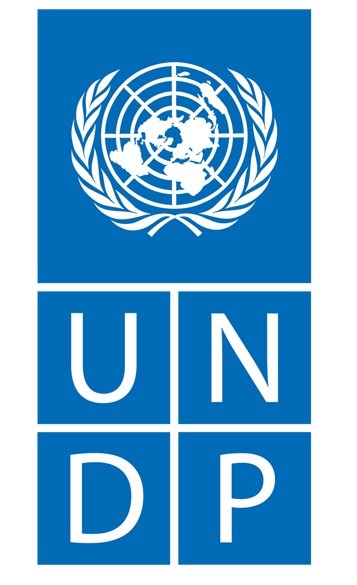 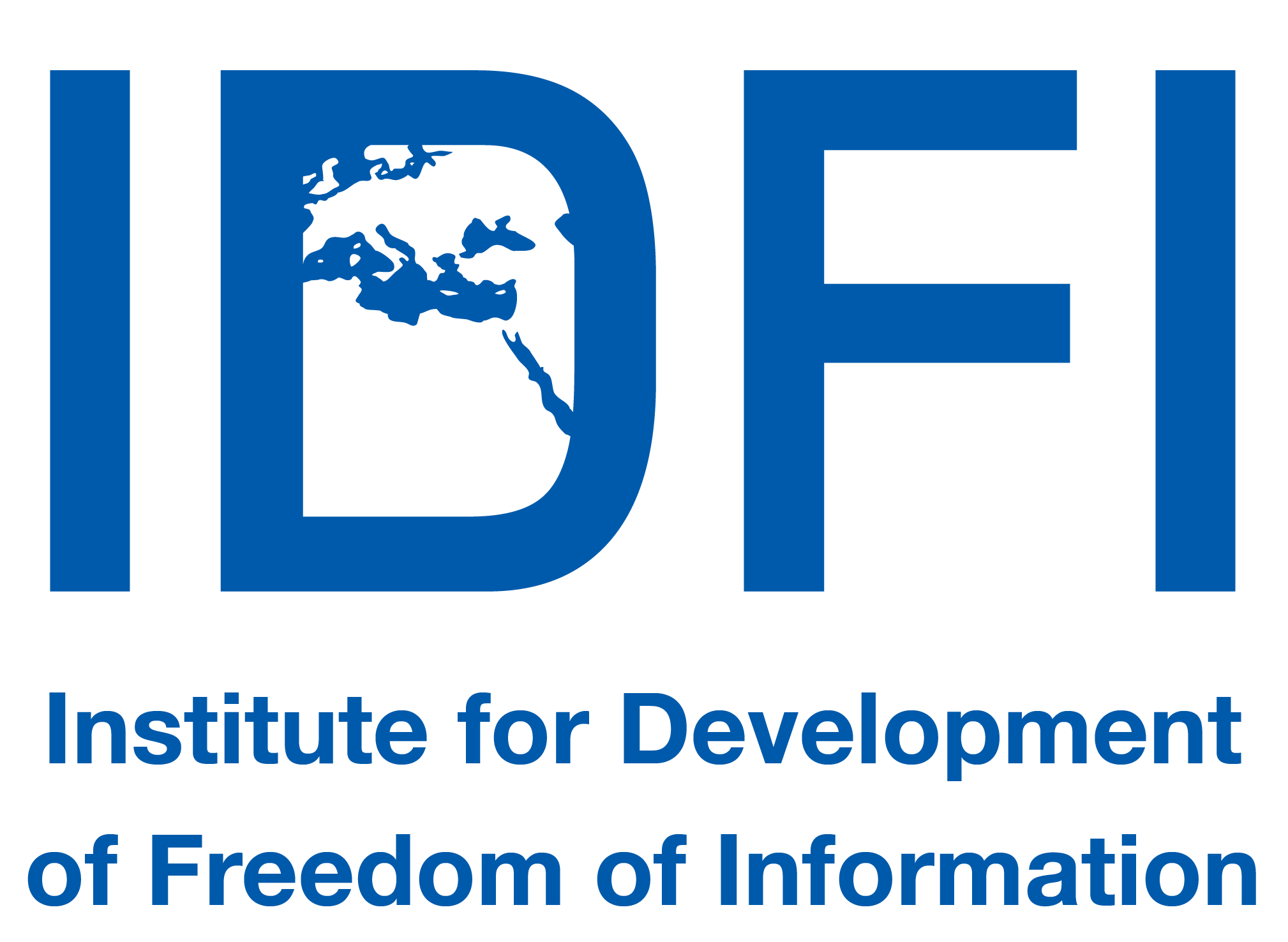
Project title: Human Rights for All – Phase II
Donor organization: United Nations Development Programme (UNDP)
Project number: 00118263
Project budget: 8,060 USD
Project duration: 24 March 2021 – 24 May 2021
Project summary
The National Human Rights Strategy envisages the protection of personal data in compliance with international standards. Considering the challenges brought by rapid technological developments as well as the objectives of the Human Rights Strategy, promoting and strengthening personal data protection in Georgia gains more and more importance. This project aims to assess the current situation in Georgia, evaluate to what extent the objectives envisaged by the Human Rights Strategy are achieved, and identify existing challenges and gaps related to personal data protection.
Within the scope of this project, Human Rights Strategy directions will be objectively evaluated and a shadow report will be produced that will assessthe current situation. In addition, the report will draw specific attention to the directions of the Association Agenda and human rights implications of the measures taken by the government in relation to COVID-19. The report will summarize the situation starting from 2020.
Purpose of the project
The purpose of this project is to contribute to personal data protection in Georgia through documenting personal data protection challenges and gaps in light of the priorities envisaged by the Strategy and Action Plan for the Protection of Human Rights.
Project activities
1. Preparation of the shadow report - IDFI will prepare a shadow report evaluating to what extent the objectives of Human Rights Strategy 2014-2020 related to personal data protection have been achieved, identifying existing challenges and gaps related to personal data protection in Georgia.
2. Publicizing the shadow report - The shadow report will be presented to all relevant stakeholders, will be published on IDFI’s website, and will be shared on social media.
Planned Activities and Project Budget
Contract
Grant agreement
|
The purpose of this project is to contribute to personal data protection in Georgia through documenting personal data protection challenges and gaps in light of the priorities envisaged by the Strategy and Action Plan for the Protection of Human Rights.
View more →
|
| Supporting CSOs in Digital Archiving |
International Coalition of Sites of Conscience |
2021 |
$1,200 |

Project title: Supporting CSOs in Digital Archiving - Expert Consultancy
Supported by: International Coalition of Sites of Conscience
Budget: $1,200
Duration: March 1 – June 15, 2021
Project Objective
Developing a manual that will support civil society organizations (CSOs) in digital archiving to advance the transitional justice processes.
Project Activities
Based on the questionnaire provided by the International Coalition of Sites of Conscience, collect and compile responses from at least three organizations in the region (former Soviet states) with digital archiving expertise; Produce a report of approximately eight (8) pages summarizing these responses and outlining the key findings (including the Consultant’s own expertise on the subject). Prepare a brief presentation about the findings.
Contract
Grant agreement
|
The project aims to develop a manual that will support civil society organizations (CSOs) in digital archiving to advance the transitional justice processes.
View more →
|
| Building Sustainable Human Capacity in Fighting Corruption |
Foundation to Promote Open Society |
2021-2022 |
$70,064 |
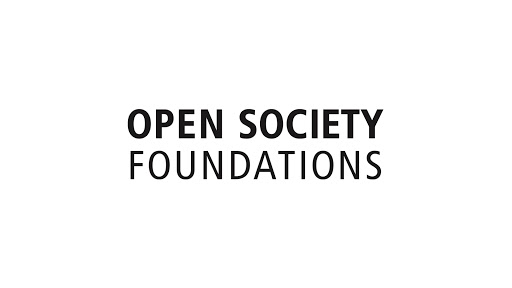
Type of grant activity: Building Sustainable Human Capacity in Fighting Corruption
Donor institutions: Foundation to Promote Open Society
Total grant amount: USD 70,064.21
Project number: OR2020-70662
Implementation period: February 1, 2021 – August 31, 2022.
Project Goals
The goal of the project will be to build a community of corruption hunters who will be leaders in prevention of corruption; will be able to manage the risks of corruption; will be involved in defining the corruption cases; and will become active members of the anti-corruption community and society as general.
The first goal of the project is to successfully implement the program, while increasing its sustainability. The modules of the program will be transformed in two academic courses of Bachelor’s Degree which will be offered for 4th year Bachelor’s students at the School of Arts and Sciences. Therefore, the new program will enable ISU students to acquire the academic credits (ECTS) while taking the courses of the program. At the same time, modifying the current modules in academic courses will increase the sustainability of the program, as the academic courses on anti-corruption practices will become a part of the curriculum of the university degree program. Becoming part of the Bachelor’s Degree courses, won’t reduce the ability of the new program to recruit course participants from the private and public sectors, or from other universities. The course participants who are not ISU Bachelor’s Degree students, will receive the certificates for successful completion of the program courses.
The second goal of the project is to elaborate and implement a set of awareness raising, and team building activities which on one hand will increase the visibility of the project and raise the awareness of the society on corruption, and on the other hand strengthen the collaboration among the anti-corruption community and enable the formation of an active alumni network. The last segment of the team-building activities will consist of presenting the sub-projects (ideas) by the course participants which will be awarded based on the project outlines and the analytical papers.
Expected Impact
Short-term impact: Enabling the ISU students to gather necessary ECTS for studying the modulestransformed in academic courses; engaging the prominent local and international experts in delivery of the course; graduates of the second cohort are becoming the members of the alumni network.
Medium-term impact: equipping the course participants with the necessary knowledge and skills, which will enable them to act as role models and change agents at their work, or through various projects that they will chose to engage with; enlarging and strengthening the anticorruption community by implementing team building exercises, planning, executing joint projects, and improving the visibility of the program and its activities.
Long-term impact: contribute to development of a community of like-minded progressive professionals, who are capable of recognizing opportunities for corruption and preventing corruption, as well as who will uncover corrupt practices and form a critical public opinion about the real human cost to corruption.
Planned Activities
Project Budget
Contract
Grant agreement
|
The goal of the project will be to build a community of corruption hunters who will be leaders in prevention of corruption.
View more →
|
| Development of Tbilisi City Hall’s Open Data Portal Concept and Terms of Reference (ToR) |
USAID Good Governance Initiative in Georgia, Tetra Tech ARD |
2020 - 2021 |
GEL 59,922 |

Project Title: Development of Tbilisi City Hall’s Open Data Portal Concept and Terms of Reference (ToR)
Donor Organization: USAID Good Governance Initiative in Georgia, Tetra Tech ARD
Project Contract Number: GGI-SUB-054
Total Budget: GEL 59,922
Duration of the Project: December 24, 2020 – April 30, 2021
Project Objectives
An Overall objective of the project is to enhance transparency and accountability of Tbilisi City Hall by developing Open Data Portal and introducing effective open data management practices.
Specific objectives of the project are:
1. Identify specific needs of Tbilisi City Hall in connection with collection, processing and publishing open data as well as existing demand for open data among different stakeholders;
2. Develop Open Data Portal Concept;
3. Prepare Terms of Reference (ToR) for development of Open Data Portal of Tbilisi City Hall.
Project Major Activities
1. Prepare a detailed workplan
2. Prepare of detailed methodology
3. Conduct comprehensive analysis
4. Presentation of Situation/Comprehensive Analysis
5. Develop draft Open Data Portal Concept of Tbilisi City Hall
6. Present draft Open Data Portal Concept to Tbilisi City Hall
7. Present draft Open Data Portal Concept to interested stakeholders
8. Finalize Open Data Portal Concept
9. Develop detailed draft of the technical terms of reference
10. Present detailed draft of technical terms of reference
11. Finalize and submit detailed technical terms of reference
12. Develop and submit all deliverables
Planned Activities and Project Budget
Contract
Grant agreement
|
The project aims to enhance the transparency and accountability of Tbilisi City Hall by developing Open Data Portal and introducing effective open data management practices.
View more →
|
| Local Self-Government Index - 2021 |
Open Society Georgia Foundation |
2020-2021 |
$20,100 |
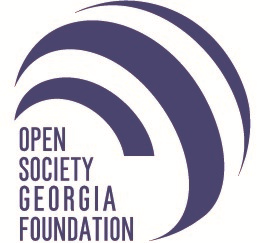
Project Title: Local Self-Government Index - 2021
Project Donor: Open Society Georgia Foundation (OSGF)
Project Number: LDD/42/20 - 21174
Project Budget: Total budget USD 54,970 (IDFI budget –USD 20,100)
Project Duration: December 16, 2020 – September 16, 2021
Responsible Organizations: Centre for Training and Consultancy (CTC), Institute for Development of Freedom of Information (IDFI) and Management Systems Development Center (MSDC)
Project Goals
The ultimate goal of the project is to develop transparent and accountable local self-governments, enhance public participation in local municipalities and improve principles of transparency and accountability at the local levels in Georgia.
To this end, the project aims to assess openness and accountability of municipalities based on Local Self-Government Index for the third time for 2021.
Project Objectives
- Provide all preconditions for conducting assessment of municipalities
- Raise public awareness about the Local Self-Government Index
- Conduct monitoring of all self-governing bodies for the third time, prepare a national report and communicate the monitoring results with all relevant local stakeholders
Project Major Activities
Objective 1: Provide all preconditions for conducting assessment of municipalities
1.1. Review the monitoring methodology
1.2. Update of the platform – lsgindex.org – enabling monitoring of municipalities in terms of transparency and accountability
1.3. Mobilization of local monitors and providing instructions
Objective 2: Raise public awareness about the Local Self-Government Index
2.1. Preparing an online webinar
2.2. Conducting public awareness raising activities about the Index
Objective 3: Conduct the third monitoring and prepare a national report
3.1. Conduct monitoring of all self-governing bodies
3.2. Prepare and present a national report of municipalities in terms of transparency and accountability based on the monitoring results
Planned Activities and Project Budget
Contract
Grant agreement
|
The goal of the project is to develop transparent and accountable local self-governments, enhance public participation in local municipalities and improve principles of transparency and accountability at the local levels in Georgia.
View more →
|
| Capacity Building Grant |
United Nations Population Fund |
2020-2021 |
$30,000 |
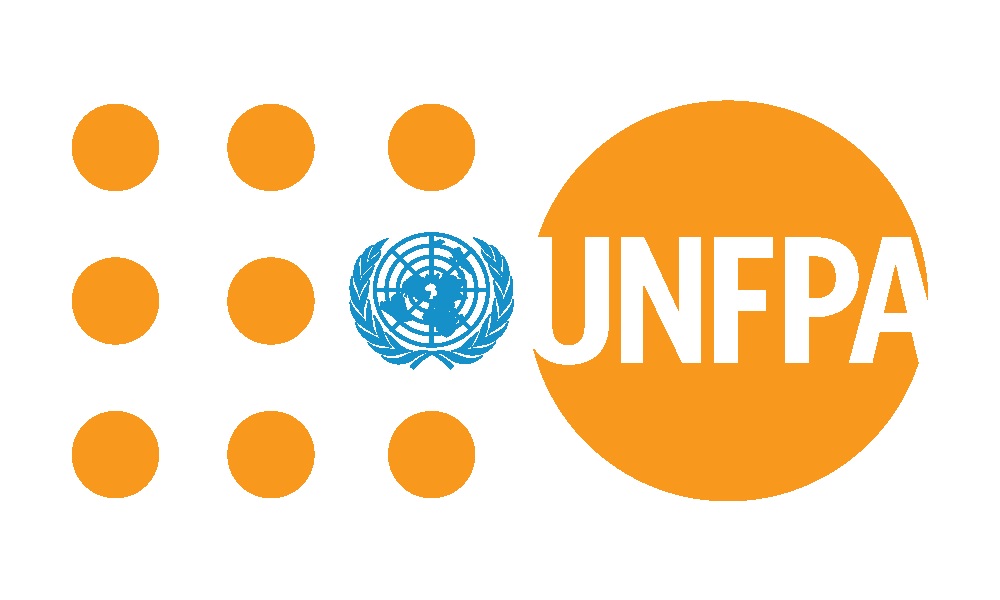
Project Title: Capacity Building Grant
Donor Organization: United Nations Population Fund (UNFPA)
Total Budget: $ 30,000
Duration of the Project:December 9, 2020-September 9, 2021
Summary of the Project
The purpose of the Grant is to strengthen the capacity of Institute for Development of Freedom of Information in the field of data for public good & open data assessment methods and tools andact as a Regional Hub for the Global Data Barometer first global edition 2020-2021; thus, contributing to a drill-down global metrics that can show the policy frameworks, data availability, and uptake, in particular sectors, and can help direct global advocacy and action, and act as a benchmark for policy makers and funders to track progress towards shared goals.
Main objectives:
- Capacity building for IDFI team on the 4 stages of the Global Data Barometer with focused sessions on each stage;
- Capacity building for national researchers from across the 11 countries co-implemented with IDFI on the field work/data collection, peer review and thematic review process;
- Continuous mentoring and capacity support to IDFI in the successful implementation ofall GDB phases in the target regions.
Activities
1. Capacity building for IDFI team on the main GDBphases
2. IDFI conducts global data barometer related capacity building sessions with all staff members of IDFI
3. IDFI conducts capacity building sessions with national country researchers on the GDB methodology
4. Review the GDB expert surveys filled in by national researchers and provide additional feedback
Budget
Contract
Grant agreement
|
Capacity building for IDFI team on the 4 stages of the Global Data Barometer with focused sessions on each stage
View more →
|
| Increase Efficiency of Public Services in the Georgian Education System |
Open Society Georgia Foundation (OSGF) |
2020-2021 |
$25,000 |
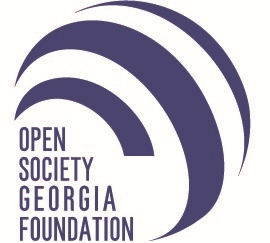
Project Title: Increase Efficiency of Public Services in the Georgian Education System
Donor Organization: Open Society Georgia Foundation (OSGF)
Project Contract Number: LDD/34/20-21154
Total Budget: $ 25,000
Duration of the Project: December 2, 2020-August2, 2021
Project Brief Description and Goals
The project aims to analyze the negative effects of COVID-19 pandemic on the education sector and increase the quality and coverage of public services during and after the pandemic.
To this end, the major objectives of the project are:
- Identify challenges facing different social groups in Georgia in terms of the learning process during the pandemic;
- Evaluation of effectiveness of government implemented actions in response to the pandemic and developing the policy recommendations, considering the best practice;
- Developing FOI requests and analyzing statistical data, during the COVID-19 pandemic and before the pandemic period;
- Survey of education service providers and sector beneficiaries
Activities
1) Preparatory stage: elaborating a comprehensive methodology and submitting FOI requests
2) Holding workshops/focus group interviews
3) Monitoring and reporting
4) Preparing a monitoring report
5) Elaborating policy recommendations
6) Final presentation
7) Cooperation with media
Project Activities
Budget
Contract
Grant agreement
|
The project aims to analyze the negative effects of COVID-19 pandemic on the education sector and increase the quality and coverage of public services during and after the pandemic.
View more →
|
| Promoting Personal Data Protection in Georgia |
Embassy of the Netherlands in Georgia |
2020-2022 |
GEL 243,929 |
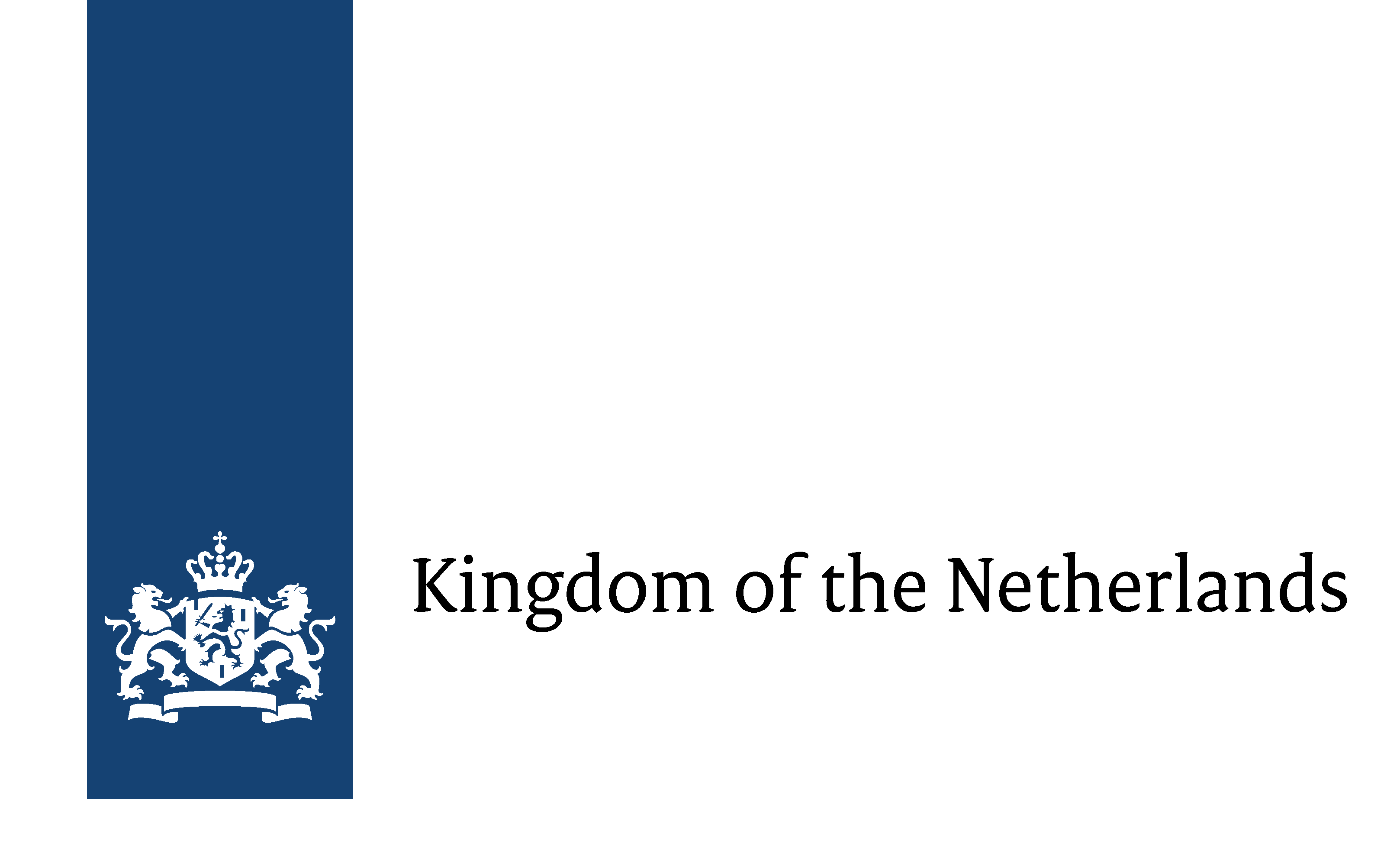 
Project title: Promoting Personal Data Protection in Georgia
Donor organization: Embassy of the Netherlands in Georgia
Project number: 4000004558
Project budget: 243,929 GEL
Project duration: 1 December 2020 – 28 February 2022
Project summary
The project is related to strengthening the personal data protection regime in Georgia through enhancing the knowledge and awareness of professional groups and students of the personal data protection standards, fostering professional and academic discussions on challenges related to personal data protection, and strengthening the capacity of the State Inspector Service. Within the scope of the project, relevant awareness-raising activities will be carried out, a number of publications/visualizations will be disseminated, working meetings will be organized with target groups, training will be held for the staff of the State Inspector Service, and relevant activities will be organized with the aim of engagement of students. As a result of the project activities, the capacity of the State Inspector Service will be strengthened which will contribute to ensuring stronger protection of the personal data in Georgia.
Purpose of the project
The main purpose of the project is to contribute to strengthening the personal data protection regime in Georgia in the most problematic fields.
Objectives of the project
-To enhance the knowledge and awareness of professional groups and students of the personal data protection standards.
-To foster professional and academic discussions on challenges related to personal data protection.
-Strengthen the capacity of the State Inspector Service.
Planned Activities and Project Budget
Contract
Grant agreement
|
The main purpose of the project is to contribute to strengthening the personal data protection regime in Georgia in the most problematic fields.
View more →
|
| Commemoration of the First Mass Graves of the Victims of the Soviet Regime Discovered in Georgia |
International Coalition of Sites of Conscience |
2020 - 2021 |
$5,000 |

Project title: Commemoration of the First Mass Graves of the Victims of the Soviet Regime Discovered in Georgia
Supported by: International Coalition of Sites of Conscience
Budget: $5,000
Duration: November 1 – February 28
In 2019, it became known that the mass graves of the victims of the 1937-1938 Soviet repressions were discovered in Adjara, Georgia. The discovery of the mass graves is very important event for Georgia because the studies of the stories of the repressed persons, their proper commemoration and immortalization have a key role in the formation of collective memory of the countries and the rethinking of the totalitarian past, which is proved by the experience of the other post-Communist countries. At the initial stage, particular steps were taken by the government for studying the mass graves. However, soon, the state interest and attention toward this issue decreased and there is no significant progress in this direction after a year of the discovery. Moreover, there is a particular controversy among the local Muslim and Christian population regarding the religious ceremonies for burying the discovered bodies, because, presumably, there are Muslims among them, which is also proved by IDFI’s research. For this, 150 bodies are still preserved on the lower ground floor of Holy Mother Virgins Nativity Cathedral in Batumi. Considering this situation, IDFI’s project aims to enhance dialogue between local Muslim and Christian communities, raise public awareness about the discovered mass graves and attract government’s attention to this issue. For this, the organization plans to create special section on the website, which will include the interviews with the descendants of the repressed individuals, their family archives and other materials. Also, with the frame of the project, IDFI will hold a roundtable discussion among local Muslims and Christians and launch an advocacy campaign for the government to take appropriate steps for studying the graves and commemorating the victims of repressions.
Project Objectives
The objectives of IDFI’s project are as follows:
- Raising public awareness about the discovered mass graves in Adjara;
- Enhancing dialogue among the local Muslim and Christian population;
- Attracting government’s attention to the issue of the discovered mass graves in Adjara in order to take appropriate steps for studying the graves and commemorating the victims of repressions.
Project activities
- Identification of the descendants of the victims;
- Conducting interviews with the descendants of the victims of repressions, collecting their oral histories and family archives;
- Creation of the special section on IDFI’s website about the victims of Stalin’s Terror, on which the materials collected within the frame of the project will be uploaded;
- Organizing roundtable discussion on mutual agreement involving local Muslims and Christians;
- Launching advocacy campaign, including writing and promotion of articles, videos and visualizations about the discovered graves and Soviet repressions;
- Elaboration of recommendations for the government in collaboration with international organizations;
- Preparation of final report.
Planned Activities and Project Budget
Contract
Grant agreement
|
The project aims to raise public awareness about the First Mass Graves of the Victims of the Soviet Regime Discovered in Georgia.
View more →
|
| Empowered Civil Society and Enhanced Beneficial Ownership Transparency Standards for Good Governance |
International Visegrad Fund |
2020-2021 |
EUR 34,902 |
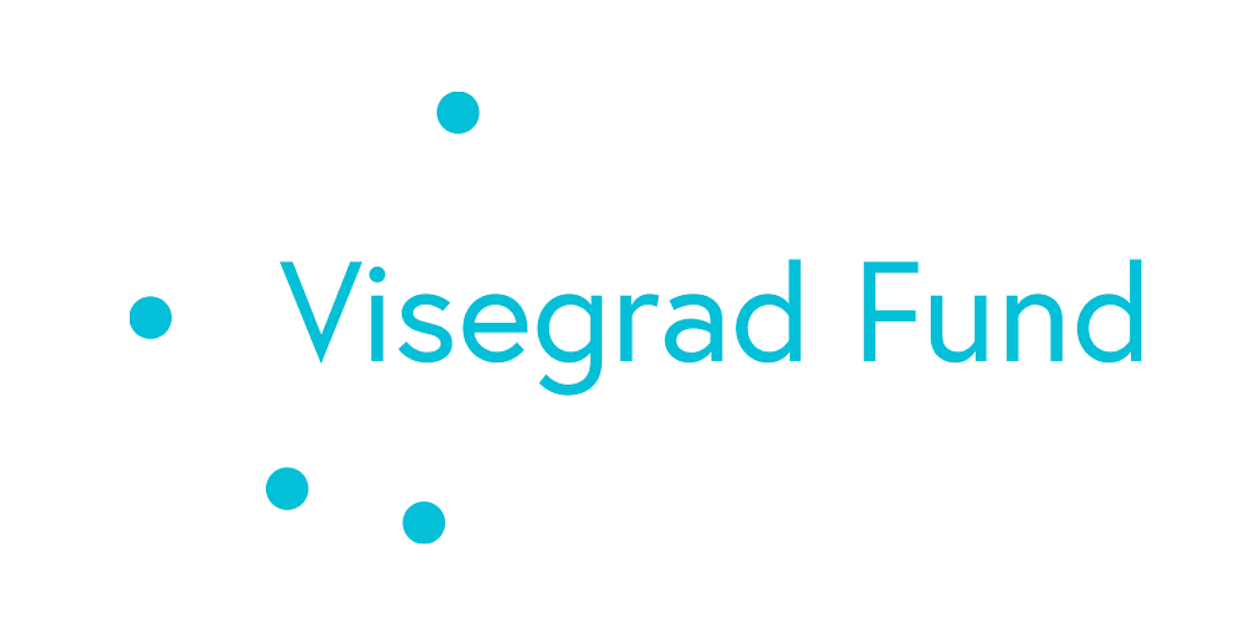
Project Title: Empowered Civil Society and Enhanced Beneficial Ownership Transparency Standards for Good Governance
Supported by: International Visegrad Fund
Grant Number: 220203362
Budget: EUR 34,902
Duration: October 1, 2020 – September 30, 2021
Partner Organizations: KohoVolit.eu (Czech Republic and Slovakia), K-Monitor Public Benefit Association (Hungary), ePaństwo Foundation (Poland)
Background
Despite Georgia’s success in fighting against petty corruption, it still has shortcomings in fighting against elite corruption. As it is acknowledged globally, beneficial ownership transparency is a crucial component for combating high and international corruption. While the registry of the beneficial ownership of the companies registered abroad does not exist in Georgia, foreign and offshore companies often hold significant assets in Georgia (real estate, capital, etc.) and participate in public procurement. With regard to Visegrad countries, Slovakia was one of the first countries of the European Union, which implemented a public register of beneficial ownership. While other countries also adopted respective laws/regulations in order to implement the Fourth Anti-Money Laundering Directive (Directive 2015/849/EU). Studying and comparing legislation and practices of these countries in this regard will be a useful experience-sharing for Georgia. Apart from existing transparency standards, civil society and media can play a critical role in enhancing government accountability. However, there is a lack of systemic public scrutiny over government activities in Georgia, as only a handful of media or civil society organizations have relevant skills to perform effective watchdog functions. Activists as well as the broader society do not have enough skills for obtaining and processing public data, as well as using online and offline (international) tools for holding the government accountable.
Project Objectives
IDFI, together with its partners from V4 countries, aims to support Georgian public to effectively monitor the government as well as enhance availability of public data on offshore companies.
To this end, the project plans to:
1) Study and advocate beneficial ownership transparency standards in Georgia and V4 countries;
2) Increase capacity of journalists, CSOs and activists through enhancing their oversight skills and promote monitoring government spending.
Such holistic approach will significantly improve the environment for watchdog community through advocating publication of more public data, including data about beneficial owners, enriching their professional skills and fostering cooperation between CSOs, journalists and activists.
Project Activities
1. Workshop on beneficial ownership transparency standards
2. Preparing toolkit on international investigative platforms, including on beneficial owners
3. Practical training/Workshop
4. Preparing joint regional study on beneficial ownership transparency legislation and practice in Georgia and V4 countries
5. Mentorship/Consultation for journalists/activists/CSOs/watchdogs
6. Contest of analytical reports/articles
7. Preparing Datasets and Update of DataLab.ge
8. Preparing visualizations / informative videos
9. Preparing analytical/investigative articles
10. Final Presentation
Project timeline and Budget
Grant agreement
|
The project aims to support the Georgian public to effectively monitor the government as well as enhance the availability of public data on offshore companies.
View more →
|
| Provision of Consultancy Service on updating Handbook on Transaprency and Citizen Participation in Georgia |
Council of Europe |
2020 |
€ 2,500 |
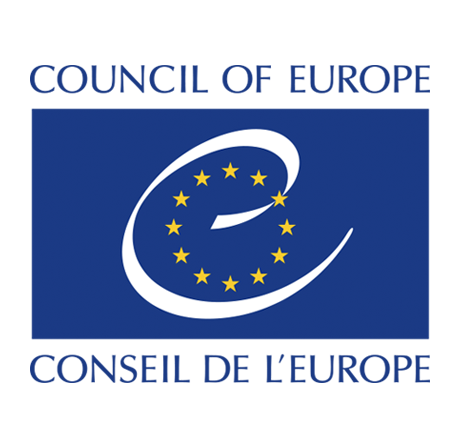
Type of Contract / Project: Direct Award / One-off contract
Contract №: 2020-417
Project ID/Sector: Congress of Local and Regional Authorities
Subject of Contract: Provision of Consultancy Service on updating Handbook on Transaprency and Citizen Participation in Georgia
Donor: Council of Europe
Budget: € 2,500
Duration: September – November, 2020
Terms of Reference
The Congress of Local and Regional Authorities of the Council of Europe is currently updating the Handbook on Transparency and Citizen Participation in Georgia (1st edition in 2017). The updated handbook will be published in the second edition and its content used as basis for the online tool bE-Open, currently under development.
In that context, the Provider has been chosen to update the existing Handbook on Transparency and Citizen Participation in Georgia, considering the latest institutional and legislative changes in Georgia in all the fields relevant to the Handbook, including anti-corruption, transparency, citizen participation, and open government. It should include an additional section on “Transparent Public Procurement”.
Deliverables
Contract
Grant agreement
|
Provision of Consultancy Service on updating Handbook on Transaprency and Citizen Participation in Georgia
View more →
|
| Monitoring Covid-19 related public spendings and human rights protection during the state of emergency and after |
European Union |
2020-2021 |
EUR 59,960 |
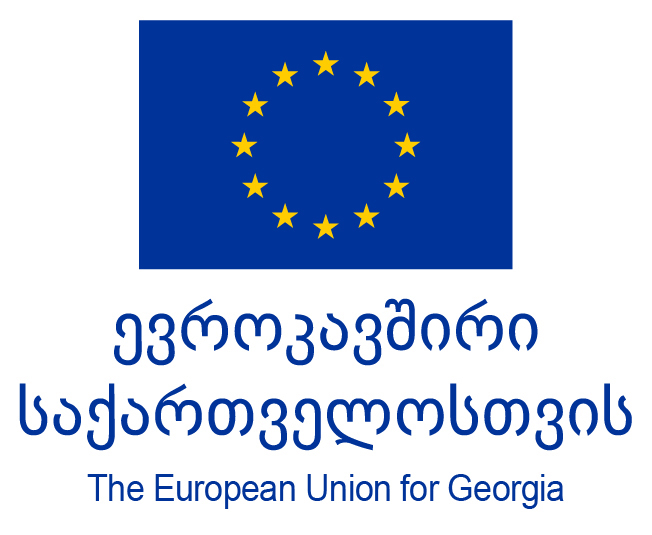
Project Title: Monitoring Covid-19 related public spendings and human rights protection during the state of emergency and after
Funded by: European Union
Project Number: ENI/2020/417-626
Total Budget: EUR 59,960
Duration: July 22, 2020 – July 21, 2021
Background
Due to the state of emergency and COVID-19 related regulations, the Government of Georgia (GoG) is entitled to perform its duties bypassing important accountability mechanisms and restricting several human rights. Moreover, GoG has announced a 3.5 bln anti-crisis plan which will be directed towards the social support of citizens, business recovery and health care. Also, the StopCov Fund was established, through which individuals and companies can donate money to overcome the coronavirus crisis. As of now, 133 million is raised. In addition, donor organisations have announced readiness to provide Georgia with $3 bln, aimed at assisting the economic recovery of the country. Therefore, conducting effective civic monitoring over public spendings and human rights restrictions is important to ensure government accountability in its efforts to fight against the pandemic.
The measures taken by the government to fight against the coronavirus create the risk of disproportionate restriction of human rights. In general, the most serious breaches of human rights take place in situations of proclaimed state of emergency and states may be inclined to use their power of derogation for other purposes or to a larger extent than is justified by the exigency of the situation. During the crisis exercising effective external control over the government and monitoring the human rights situation gains more and more importance, because the risks of abuse of power by the authorities is especially high.
The action will contribute to increasing government accountability regarding Covid-19 related public spending, implementation of the Government Anti-Crisis Plan, spending of StopCov Fund and allocation of donor support. In addition, the risks of disproportionate restriction of human rights during the COVID-19 crisis will be studied and mitigated.
Action Objectives
Overall objective
Contribute to increasing effectiveness and proportionality of actions to fight against the pandemic in Georgia
Specific objectives
1: Contribute to increasing government accountability, and transparency regarding Covid-19 related public spendings and Anti-Crisis Plan through monitoring, reporting, public awareness raising and advocacy efforts.
2: Contribute to strengthening human rights standards through monitoring, advocacy and civil society engagement.
Action Activities
1. Monitoring Covid-related public spending, public procurements, implementation of the Government Anti-Crisis Plan, spending of StopCov Fund and allocation of donor assistance.
2. Monitoring the state of human rights during Covid-19 related restrictions.
3. Publish and disseminate monitoring results/recommendations online and offline during presentations and workshops
4. Hold 3 online public discussions
5. Elaborate policy recommendations
6. Advocate policy recommendations through 2 presentations and 2 workshops
Action Results:
- Cases of alleged mismanagement of Covid-19 related public funds, donor assistance and ineffective implementation of Anti-Crisis Plan are revealed and remedied.
- The risks of disproportionate restriction of human rights during the COVID-19 crisis are mitigated.
- Public Awareness about revealed challenges and shortcomings related to Covid-19 related public spending and human rights protection is increased.
Project timeline and Budget
/public/upload/EU/Spec_Cond_signed - IDFI.pdf
Grant agreement
|
The project aims to increase the effectiveness and proportionality of actions to fight against the pandemic in Georgia.
View more →
|
| Promoting Greater Transparency and Ethical Standards of Using Artificial Intelligence (AI) in Georgia |
International Center for Non-for-profit Law, Inc. (ICNL) |
2020 |
$19,999 |
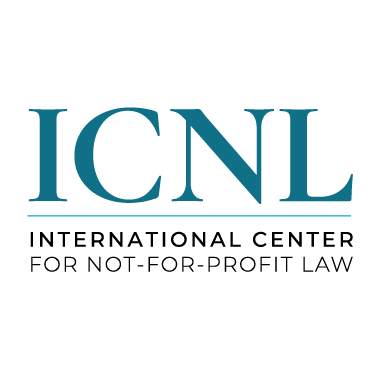
Project Title: Promoting Greater Transparency and Ethical Standards of Using Artificial Intelligence (AI) in Georgia
Donor Organization: International Center for Non-for-profit Law, Inc. (ICNL)
Project Contract Number: Netherlands.2020.IDFI.01
Total Budget: $19,999
Duration of the Project: July 01, 2020 – December 31, 2020
Context
The artificial intelligence can strongly support the reform of public administration in decision-making, service delviery, etc. However, its usage is also connected with some challenges related to insufficient transparency, accountability and data processing oversight mechanisms, as well as unfairness and inaccuracy. In addition, in countries like Georgia which lacks sufficient oversight mechanisms over law enforcement agencies and where independence of judiciary is still questionable, use of AI in decision-making may happen with the abuse of the right to personal life.
The use of face recognition system, developed by the Ministry of Internal Affairs needs to be studied, assessed and evaluated. The system began operation in June 2017, and works in combination with 400 CCTV surveillance cameras installed in Georgia's major cities, including the capital, Tbilisi. In addition, Tbilisi City Hall considers the possibility to introduce biometric facial recognition in the Tbilisi subway system and use the technology in its public transport system. Therefore, it is important to further explore this topic and cover the use of face recognition by Georgian governmental agencies, with the particular focus on the Ministry of Internal Affairs. Additionally, there is a need to raise awareness of the representatives of government institutions, as well as other stakeholders and general public, about the use, work and impact of AI in their everyday life. Most importantly, due to the novelty of the issue, they should be informed about transparency and ethical standards of using AI. Also, IDFI considers it of high importance to strengthen the capacity and support the engagement of the State Inspector’s Service in this regard.
Project Aim and Objectives
With this project, IDFI aims to promote development and implementation of greater transparency and ethical standards in using AI by governmental agencies in Georgia.
To this end, IDFI will:
- Study and identify major challenges in using AI/face recognition systems by governmental agencies (with special focus on the Ministry of Internal Affairs);
- Promote development and implementation of transparency and ethical standards in using AI/face recognition systems by public sector in Georgia.
- Foster public discussion on the issue;
- Raise awareness of all relevant stakeholders on the issue.
Project Activities
In order to achieve the mentioned objectives, IDFI will implement the following activities:
1) Initial workshop with representatives of governmental agencies using AI in decision-making.
2) Update methodology, submit FOI requests and (if needed) conduct interviews
3) Study the use of AI by Georgian governmental agencies - Based on the accumulated data, IDFI will prepare a study on the use of AI by governmental agencies in decision-making, to what extent they follow ethical and transparency standards, and whether there are any accountability mechanisms available in this process.
4) Elaborate policy recommendations and ethical and transparency standards - Based on the revealed challenges, IDFI will elaborate policy recommendations with the consideration of best international standards and practices in this regard.
5) Follow-up workshop - As soon as major findings and recommendations are elaborated and prepared, IDFI will conduct a follow-up workshop with the representatives of all relevant governmental agencies.
6) Final conference - Following the workshop, IDFI will finalize the study and recommendations. Once ready, documents will be translated and their printed versions will be prepared.
7) Training for target governmental agencies using AI – In order to raise awareness of representatives of governmental agencies about ethical and transparency standards of using AI, including face recognition system and automated decision-making, IDFI will organize a practical training.
8) Awareness raising about the topic – Apart from tailored training for public servants, IDFI will prepare an informational brochure for general public to raise citizen’s awareness about the topic.
Planned Activities and Project Budget
Contract
Grant agreement
|
The project aims to promote development and implementation of greater transparency and ethical standards in using AI by governmental agencies in Georgia.
View more →
|
| Supporting the Functioning of the State Inspector Service |
Open Society Georgia Foundation |
2020-2021 |
$49,890 |

Project title: Supporting the Functioning of the State Inspector Service
Donor organization: Open Society Georgia Foundation
Project number: HR/12/20 – 21074
Project budget:49,890 US Dollars
Project duration:24 June 2020 –15 July 2021
Project Description
The project aimsto identify gaps and challenges related to the investigative work of the State Inspector Service as well as to deliver relevant recommendations in order to support improvement of its functioning. The project team will study current legal framework, other legislative acts related to the State Inspector Service as well as conduct interviews with the prosecutors and investigators to further identify existing gaps and flaws in the legislation and practice. Within the scope of this project, study will be prepared which will include major findings of the monitoring as well as recommendations aimed at improving its work.
Purpose of the Project
The project is aimed at supporting the functioning of the State Inspector Service, with a particular focus on its investigative function, through monitoring, research and advocacy. In addition, the goal of the project is to promote the improvement of the work of the State Inspector Service through identifying needs and challenges related to its functioning.
Project Activities
1. A study will be prepared on investigative work of the State Inspector Service, which will cover analysis of the national legal framework, international standards, public information and secondary sources, and the results of conducted interviews;
2. Two critical thematic foreign articles will be translated and published;
3. Two thematic media trainings will be held;
4. Working meetings with the State Inspector Service, Ministry of Internal Affairs, Prosecutor’s Office and Parliament;
5. Public presentation of the study.
Planned Activities and Project Budget
Contract
Grant agreement
|
The project is aimed at supporting the functioning of the State Inspector Service, with a particular focus on its investigative function, through monitoring, research and advocacy.
View more →
|
| Develop Integrity and Transparency Strategy and Action Plan for the City-Halls of Telavi and Lagodekhi Municipalities |
USAID Good Governance Initiative in Georgia, TETRA TECH |
2020 |
GEL 40,970 |

Project Title: Develop Integrity and Transparency Strategy and Action Plan for the City-Halls of Telavi and Lagodekhi Municipalities
Donor Organization: USAID Good Governance Initiative in Georgia, TETRA TECH
Project Contract Number: GGI-SUB-042
Total Budget: 40,970 GEL
Duration of the Project: 23 April 2020 – 31 August 2020
Objectives
The overall objective of the project is to strengthen resilience of Telavi and Lagodekhi City-Halls against the threat of corruption.
Specific objective of this assignment is to support Telavi and Lagodekhi City-Halls in:
1) Development of Integrity and Transparency Strategy, Action Plan and monitoring framework;
2) Capacity building of the relevant staff on integrity and transparency to apply anticorruption measures in practice.
Project Activities
In order to achieve the above-mentioned objectives, IDFI will implement the following activities:
- Development of a detailed methodology
- Development of a detailed work plan
- Conduct a comprehensive situational analysis
- Preparation of Situation Analysis Report and Recommendations
- Development of Strategy and Action Plan
- Conduct Public Discussion
- Finalizing Strategy and Action Plan
- Development of a Training Module
- Conduct a capacity building activity
Project Timeline
Contract
Budget
Grant agreement
|
The overall objective of the project is to strengthen resilience of Telavi and Lagodekhi City-Halls against the threat of corruption
View more →
|
| Developing Open Data Practices in the City Halls of Gori, Lagodekhi, Ozurgeti, Senaki, Telavi and Zugdidi Municipalities |
USAID Good Governance Initiative in Georgia, Tetra Tech ARD |
2020 |
GEL 70,171.50 |

Project Title: Developing Open Data Practices in the City Halls of Gori, Lagodekhi, Ozurgeti, Senaki, Telavi and Zugdidi Municipalities
Donor Organization: USAID Good Governance Initiative in Georgia, Tetra Tech ARD
Project Contract Number: GGI-SUB-041
Total Budget: 70,171.50 GEL
Duration of the Project: May 1, 2020 – August 31, 2020
Project Objectives
Specific objectives of the Project are to:
1. Identify specific needs of Gori, Lagodekhi, Ozurgeti, Senaki, Telavi and Zugdidi Municipalities in connection with collection, processing and publishing open data.
2. Review an existing Open Data Manual in Georgia and tailor it down to the Municipalities’ needs.
3. Develop training agenda together with training material package based on the needs identified.
4. Conduct robust trainings of relevant staff of the Municipalities aimed at development of Open Data
Project Activities
In order to achieve the above-mentioned objectives, IDFI will implement the following activities:
- Prepare a detailed methodology
- Prepare of detailed work plan and communicate with municipality representatives
- Conduct situational analysis in connection with open data collection, processing and publication practices (situational analysis process among other elements should also envisage focus group meetings with different stakeholders);
- Based on findings of situational analysis and international best practices develop situational analysis reports together with recommendations tailored to the individual needs of Municipalities
- Update Open Data Manual
- Develop training module and materials
- Conduct capacity building activities for the relevant staff of 6 City Halls to successfully collect, process and publish open government data in practice.
- Develop and submit all deliverables in the final form including the final report summarizing work conducted and results achieved
Planned Activities and Project Budget
Contract
Grant agreement
|
An overall objective of the project is strengthening good governance in Gori, Lagodekhi, Ozurgeti, Senaki, Telavi and Zugdidi Municipalities through improving their understanding on the open data policy.
View more →
|
| Enhancing Transparency of the Judiciary in Georgia |
East West Management Institute (EWMI)/Promoting Rule of Law in Georgia (PROLoG) |
2020-2021 |
$33,137 |

Project title: Enhancing Transparency of the Judiciary in Georgia
Donor organization: East West Management Institute (EWMI)/Promoting Rule of Law in Georgia (PROLoG)
Project number: G-1720-20-211-3024-20
Project budget: 33,137 USD
Project duration: 24 April 2020 – 31 March 2021
Project summary
The project is related to studying transparency of the judiciary through research and monitoring. Within the scope of the project, IDFI will study international standards, national legislation and practice as well as monitor court websites. Particular focus will be made on court statistics, proactively published information and accessibility of court decisions. Within the scope of the project, IDFI will study what kind of information is statistically processed in the judiciary and what are the challenges in this regard. As a result of research and monitoring, existing gaps will be identified and relevant recommendations will be prepared, which will be reflected in a final report.
Purpose of the project
The main purpose of the project is to enhance transparency of the judiciary, and advocacy of changes in legislation and practice.
Objectives of the project
- Delivering a comprehensive study on transparency of the judiciary (with a particular focus on court statistics, proactively published information and access to court decisions), identifying existing challenges and gaps;
- Delivering recommendations regarding enhancing transparency of the judiciary taking into account international standards and best practices;
- Advocacy of prepared recommendations.
Project Timeline
Budget
Contract
Grant agreement
|
The main purpose of the project is to enhance transparency of the judiciary, and advocacy of changes in legislation and practice
View more →
|
| Ensuring Legal Safeguards for Digital Rights in Georgia |
Counterpart International |
2020 |
GEL 110,695 |
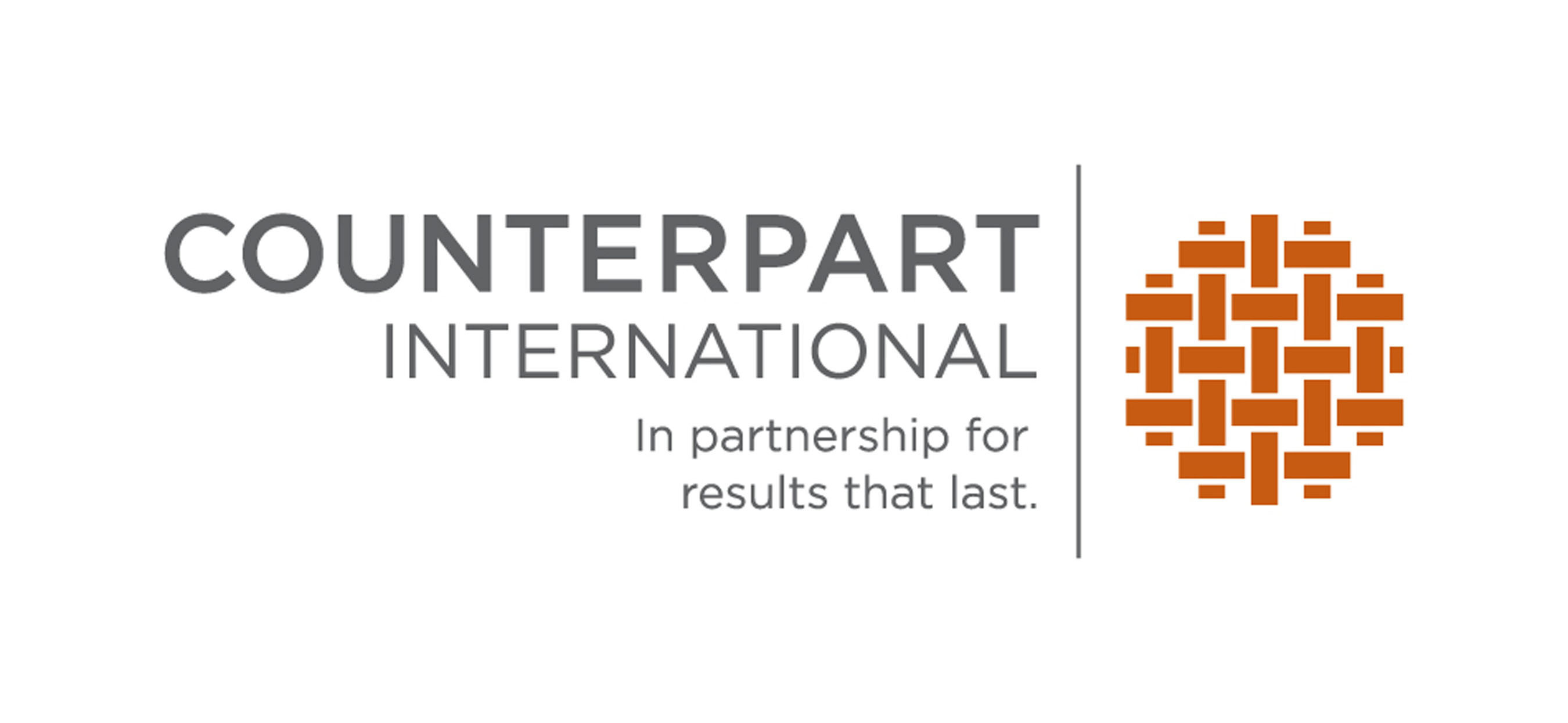
Project Title: Ensuring Legal Safeguards for Digital Rights in Georgia
Donor Organization: Counterpart International
Project Contract Number:AID-OAA-LA-11-00008
Total Budget: 110,695 GEL (34,964 USD)
Duration of the Project: April 15-August 28, 2020
Background
Internet is regarded as free in Georgia. According to the Freedom House recent reports, the Internet has been free since 2012. However, blocking of international platforms such as Wordpress and Youtube in 2016, as well as recent suggested controversial amendments to the Law of Georgia “on Information Security” demonstrate the need for engagement of civil society in ensuring legal safeguards for Internet freedoms. Despite emerging security risks, it is important to find an accurate balance between security and digital freedoms, especially for Georgia which lacks sufficient civic oversight mechanisms over law enforcement bodies and where independence of judiciary is still questionable.
It is incremental to ensure that civil society perspective is adequately reflected and considered while modifying Georgia’s information security system and legislation. Taking into account best international practices and local challenges in terms of digital freedoms and information security are also important in this process.
Objectives
Major goal is to ensure and strengthen safeguards and digital freedoms on the legislative level in Georgia.
To this end, the project has the following objectives:
- Find an accurate balance between digital freedoms and security;
- Identify major challenges and problems relevant for Georgia in this regard;
- Consider international practice and international standards in this regard;
- Propose and promote/advocate alternative version of information security system/legal framework proposed by the government.
Project Activities
In order to achieve the above-mentioned objectives, IDFI will implement the following activities:
1. Study of international practice/standards on cybersecurity environment, legal framework and institutional arrangement
2. Working on policy recommendations
3. Meetings with decision-makers and representatives of all relevant public institutions
4. Final conference
5. International expert and IDFI meeting with decision-makers
Planned Activities and Project Budget
Contract
Grant agreement
|
The project goal is to ensure and strengthen safeguards and digital freedoms on the legislative level in Georgia.
View more →
|
| Develop Building Integrity and Transparency Strategy and Action Plan for the City Hall of Senaki Municipality |
USAID Good Governance Initiative in Georgia, Tetra Tech ARD |
2020 |
GEL 30,065 |
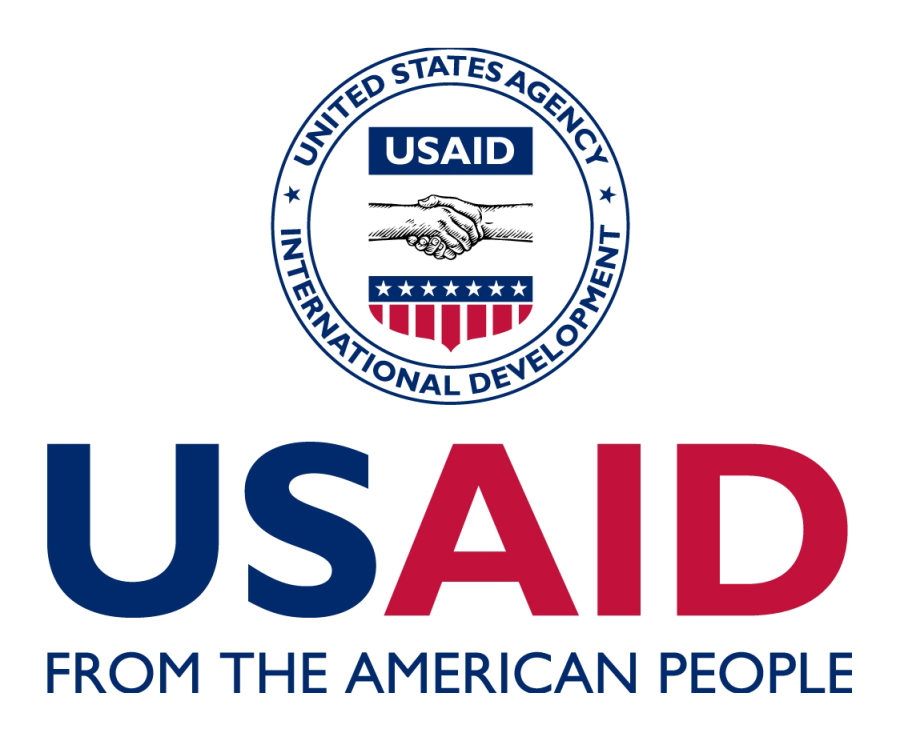 
Project Title: Develop Building Integrity and Transparency Strategy and Action Plan for the CityHall of Senaki Municipality
Donor Organization: USAID Good Governance Initiative in Georgia, Tetra Tech ARD
Project Contract Number: GGI-SUB-040
Total Budget: 30,065 GEL
Duration of the Project: 25 March 2020 – 31 August 2020
Objectives
The overall objective of the project is to strengthen resilience of Senaki City Hall system against the threat of corruption.
The specific objective of this assignment is to support Senaki City Hall in:
1) Development of Building Integrity and Transparency Strategy, subsequent Action Plan, together with indicators and monitoring framework;
2) Capacity building of the relevant staff to successfully apply anti-corruption measures in practice.
Project Activities
In order to achieve the above-mentioned objectives, IDFI will implement the following activities:
- Development of a detailed methodology
- Development of a detailed work plan
- Conduct comprehensive situational analysis
- Preparation of Situation Analysis Report and Recommendations
- Presentation of findings and recommendations
- Development of draft Strategy and Action Plan
- Conduct Public Discussion
- Finalizing Strategy and Action Plan
- Development of a Training Module
- Conduct a capacity building activity
- Submission of final deliverables
Planned Activities
Project Budget
Contract
Grant agreement
|
The overall objective of the project is to strengthen resilience of Senaki City Hall system against the threat of corruption
View more →
|




















